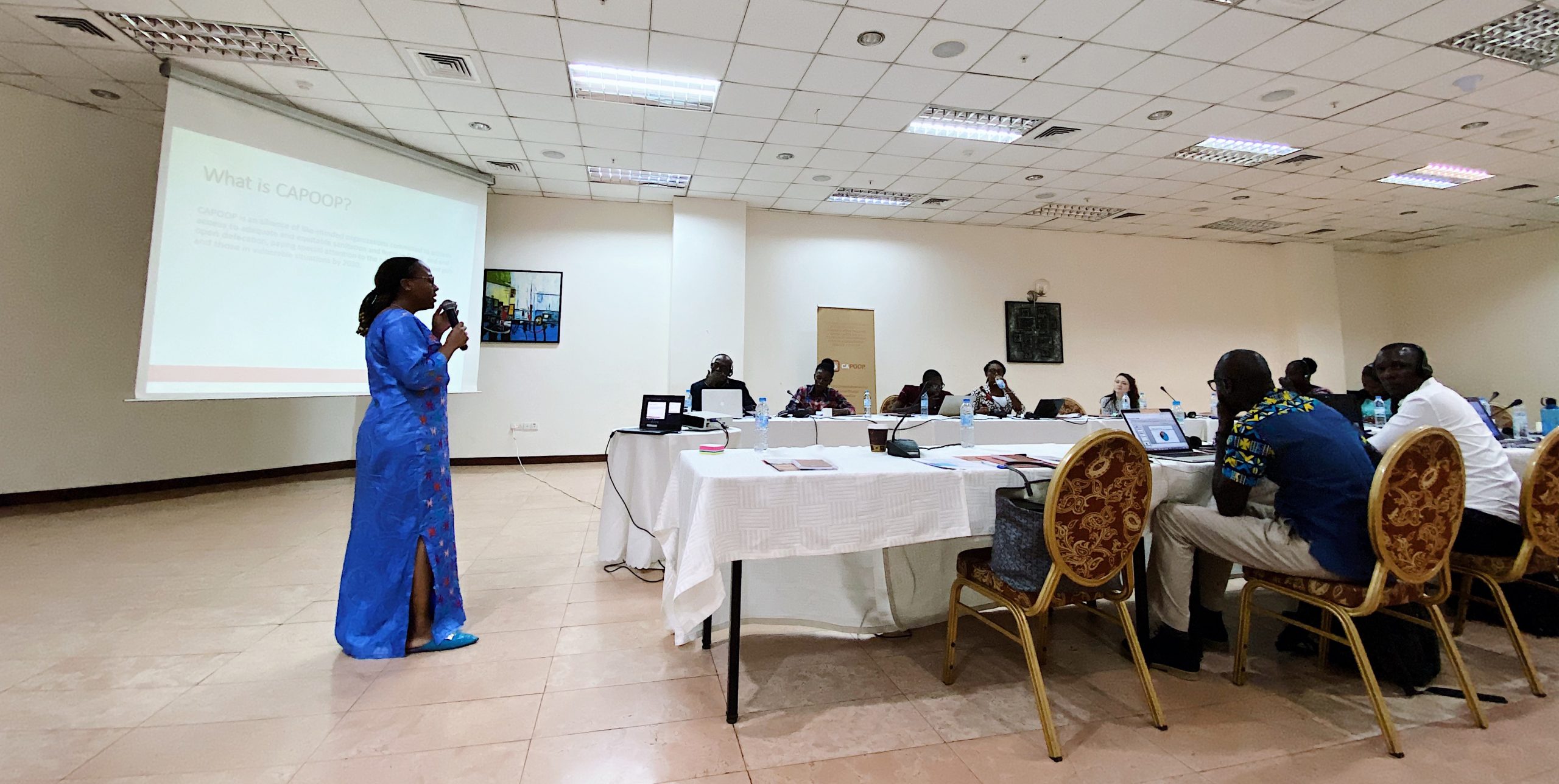By Aïda Kabo, Program Officer, Speak Up Africa
While access to water and sanitation are considered fundamental human rights, approximately one in three people in Africa still live without basic sanitation[1], in fact more people have a mobile phone than have access to a toilet. These are shocking figures that have no place in our world, let alone in the 21st century. This lack of access leads to fecal borne diseases, the proliferation of certain neglected tropical diseases (NTDs) or malaria, and deaths that could, otherwise, be avoided. However, through comprehensive and inclusive policies leading to quality and equitable services, we can change this, and change the lives of millions across the African continent.
The sixth UN Sustainable Development Goal (SDG) is clear: ensure availability and sustainable management of water and sanitation for all with specific attention to needs of women and girls, and those living in vulnerable conditions. This goal encompasses a myriad of vital water, sanitation and hygiene issues: ending open defecation, improving water quality, supporting local engagement and lack of adequate policies. Only nine years away, there is still so much that we must do. While substantial progress has been made in increasing access to these basic rights, billions of people still lack access, and therefore there is more that must be done and critical gaps in terms of implementation and funding of water and sanitation policy remain.
This progress has also faced a significant barrier, the emergence of the Covid-19 pandemic. Covid-19 has emphasized the critical importance of safely managed sanitation and hygiene, and safe water in a way never seen before. According to the UN, the coronavirus crisis may not be stopped without access to all to safe water and sanitation, providing an even greater sense of urgency. The consequences of the ongoing pandemic could be higher on those living in slums, who do not have access to safe water, sanitation and hygiene and live-in overcrowded conditions. With 4 million cases already in Africa to date, the most effective way to stop this number growing exponentially is through increased access to handwashing with water and soap. However, even in our health facilities we are at risk. With 1 in 4 health facilities still lacking basic water services[2], how can we expect to be able to reduce the spread of the disease and prevent infections? With this level of risks, we must act! The World Bank states that the capital investments required to achieve the water supply, sanitation, and hygiene SDGs (targets 6.1 and 6.2) amount to about three times the current investment levels[3].
The fact is every person should have sustainable access to safe water, safely managed sanitation and hygiene. However, many countries, and many governments, especially in Africa are unsure on how to achieve this. Creating comprehensive and inclusive sanitation and hygiene policies may seem like an arduous and complex process, however actors of the sector are implementing solutions to support countries. The African Ministers’ Council on Water (AMCOW) is currently spearheading the development of the African Sanitation Policy Guidelines (ASPG). These guidelines provide the framework on which an ideal sanitation policy responding to African realities and contexts can be built. Created by the policy and WASH experts led by AMCOW, the ASPG will fast forward the process of creating and implementing policies to safely manage sanitation. This makes them not only a key resource for achieving the United Nations SDGs, but also for driving forward development.
Sanitation is not just a human right problem, it is also an economic problem, with $260 billion lost globally each year due to lack of basic water and sanitation[4]. This is felt through a loss of income due to sanitation-related illnesses, an inability to attend school and a lack of safety. The World Health Organization previously calculated that for every $1 invested in sanitation, there was a return of $5[5]. Inequitable access to sanitation clearly costs us dearly, and it is the most vulnerable in society who are paying the price.
By encouraging multi-sector actors to work together and encouraging governments to adopt policies that support access to safely managed sanitation, we can progress in our development. By accessing sanitation, people are empowered, particularly woman and children, and those living in vulnerable situations. We can ensure that every man, woman and child will leave in a clean environment. Although it may look like we have a long way to go, there are solutions available that can support fast track the process. The ASPG will be a key element of this, one that we are proud to support AMCOW in implementing.
[1] WHO/UNICEF Joint Monitoring Program 2017
[2] WHO, WASH in health care facilities: Global Baseline Report 2019
[3] World Bank Group, The Costs of Meeting the 2030 Sustainable Development Goal Targets on Drinking Water, Sanitation, and Hygiene
[4] https://water.org/documents/184/FY21_Key_Water.org_facts.pdf
[5] https://www.who.int/news-room/fact-sheets/detail/sanitation

